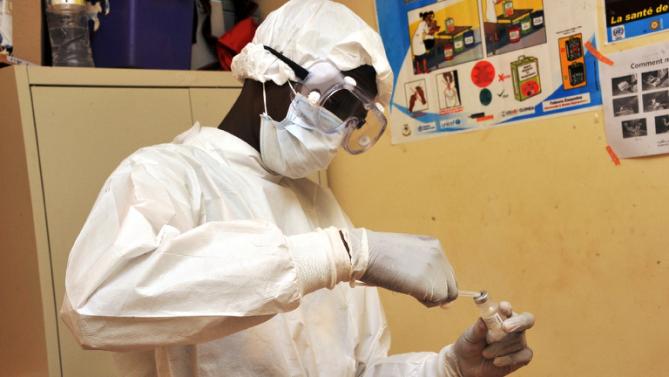The only possible place to encounter Ebola in Conakry is the main treatment unit, yet elsewhere in Guinea the virus is thriving in a febrile atmosphere of deep mistrust and swirling conspiracy theory.
The impoverished west African nation and its neighbours Sierra Leone and Liberia have registered more than 11,000 deaths since the epidemic flared up in December 2013.
It is in Guinea — the original epicentre but least-affected country — where the reaction to the fight against Ebola has been the most suspicious, however, manifesting itself in sporadic bloodshed.
Eight members of an outreach team in the southeastern town of Womey were killed by protesters who denied the existence of Ebola and denounced a “white conspiracy” in September last year.
Violence erupted last week in the country’s western provinces, where there are around 20 confirmed cases, with attacks targeting public institutions, ambulances and even health workers.
These examples of the “reluctance” of locals, to employ the official parlance, are igniting new transmission chains and so hampering efforts to stamp out the virus, say the authorities.
“When you encounter this reluctance, it is not always easy to follow people who are hiding or trying to escape monitoring and investigations,” said Sara Christiaensen, a health promoter at Donka Hospital in Conakry for Doctors Without Borders, which is known by its French initials MSF.
Among the many reasons, she says, is the fear that people will die in Ebola treatment units (ETUs) and then “we burn the bodies and sell the blood and body parts”.
“Rumours remain a big challenge,” she told AFP, adding that MSF systematically lists the false stories it encounters, in a coordinated bid to counter misinformation.
– ‘State corruption’ –
In a paper reporting the concerns of locals in 26 villages in southern Guinea in the summer of 2014, socio-anthropologist Julienne Anoko, a consultant for the World Health Organization (WHO), classified all of the rumours which are found, in some form or another, in Guinea and its neighbours.
In addition to organ and corpse trafficking, theories abound about white Westerners using Ebola scare stories to exploit local resources, and about African leaders making up the epidemic to get aid from these same white people.
Elsewhere people believe the virus or its response is all about eliminating sections of the population deemed hostile to the government.
Frederic Le Marcis, a social anthropology professor at the Ecole Normale Superieure de Lyon, sees this “reluctance” as a natural reaction to “an intervention of the state and more generally the elites who were perceived as corrupt and violent themselves”.
This suspicion, he says, has been compounded by mistakes made in the initial emergency operation to curb Ebola.
AFP



